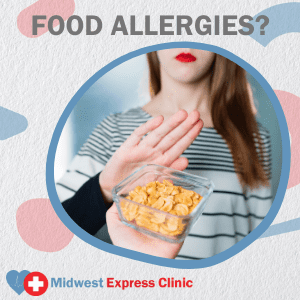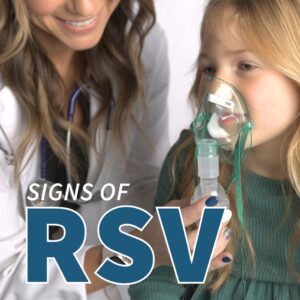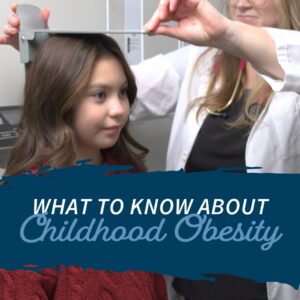Food Allergies: Causes, Symptoms, & Management
 All allergic reactions are caused by the result of a person’s immune system overreacting to a particular trigger. Food allergies are no exception, but the reactions may look a bit different, ranging from uncomfortable to life-threatening. According to the Mayo Clinic, roughly 6 to 8 percent of children 3 years of age and under and up to 3 percent of adults suffer from some type of food allergy. It’s important to understand what may cause food allergies, what the symptoms look like, and how they can be treated, especially for those who experience dangerous reactions.
All allergic reactions are caused by the result of a person’s immune system overreacting to a particular trigger. Food allergies are no exception, but the reactions may look a bit different, ranging from uncomfortable to life-threatening. According to the Mayo Clinic, roughly 6 to 8 percent of children 3 years of age and under and up to 3 percent of adults suffer from some type of food allergy. It’s important to understand what may cause food allergies, what the symptoms look like, and how they can be treated, especially for those who experience dangerous reactions.
Common Causes of Food Allergies
Food allergies are triggered by the specific proteins found within a food. While there are other potential foods that could cause a reaction, the most common allergies are those caused by:
- Shellfish, including shrimp, lobster, and crab
- Peanuts
- Tree nuts like walnuts and pecans
- Fish
While these items can cause a reaction for both children and adults, children are also susceptible to food allergies caused by:
- Eggs
- Cow’s milk
- Wheat
- Soy
Children often grow out of these food allergies, but it’s always important to discuss reintroduction of these items with your child’s doctor.
Symptoms of Food Allergies
Symptoms of a food allergy are different for everyone and can be triggered by even the smallest bit of the item. Those with an allergy may develop symptoms anywhere from a few minutes after exposure to two hours after consumption. The most common symptoms people experience with a food allergy include:
- Tingling or itching within the mouth
- The appearance of hives, itching, or eczema
- Swelling of the lips, face, tongue, throat, or other areas of the body
- Wheezing, nasal congestion, or trouble breathing
- Abdominal pain, diarrhea, nausea, or vomiting
- Dizziness, lightheadedness, or fainting
Those who experience a severe reaction may have anaphylaxis, which is life-threatening and requires immediate medical attention. Symptoms of an anaphylactic reaction include:
- Tightening or constriction of the airways
- Swollen throat or a sensation of a lump on the throat that makes it difficult to breathe
- Shock and severe drop in blood pressure
- Rapid pulse
- Dizziness, lightheadedness, or loss of consciousness
Treatment and Management of Food Allergies
If you or someone in your family has been exhibiting symptoms of a food allergy after exposure or consumption, contact your doctor or an allergist. If possible, try to see them when a reaction is occurring to help with diagnosis. Any emergency reaction, such as anaphylaxis, should be treated immediately by calling 911 or going to the ER.
While food allergies are not curable, taking the proper precautions will help minimize or prevent the risk of a reaction. If you know what causes your reaction, do your best to avoid the trigger. Some foods are easier to stay away from than others, particularly if it’s hidden within the ingredients list, so due diligence is vital. Some ways to help prevent a reaction if you have a food allergy include:
- Reading food labels or ensuring you are aware of all ingredients before consuming
- Use caution at restaurants and notify the server or chef of your allergy to help avoid any cross-contamination
- Plan meals and snacks before leaving your home, or bring your own food with you if you are unsure of available options where you are going
- Wear a medical bracelet or necklace to alert others in the event you have a reaction and are unable to communicate
- Discuss the possibility of getting emergency epinephrine prescribed, such as the EpiPen, from your doctor in the event of a severe reaction
- Notify your child’s teachers, day care providers, or care givers about their food allergy, and explain symptoms to look for. Provide those individuals with an action plan should a reaction occur in their care, and consider having your child wear a medical alert bracelet or necklace at all times with symptoms and first aid explanations
Living with a food allergy can be inconvenient and sometimes even dangerous. However, understanding your triggers and how to manage a reaction can help you avoid issues and enjoy life.
If you suspect you or a loved one may be experiencing a food allergy, visit one of our convenient Midwest Express Clinic locations today. We can help narrow down a source of your allergic reaction, or suggest additional testing to provide you with the answers you need.




